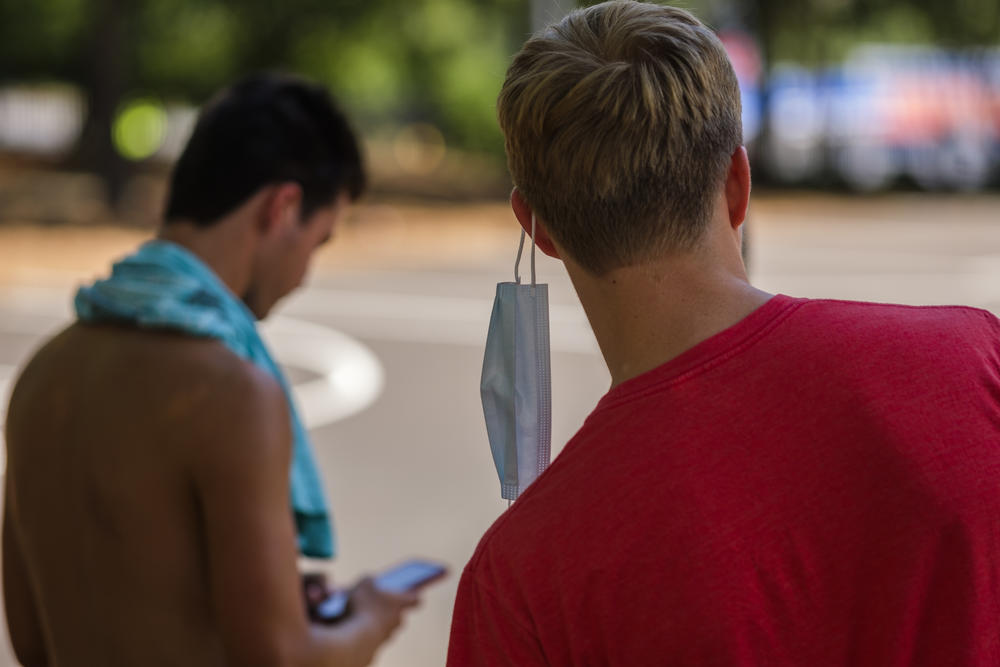
Caption
University of Georgia students get acquainted in August 2020. This year, this and many other public campuses in the state are set to reopen in-person attendance without a vaccine mandate. Many private colleges are requiring COVID-19 vaccination.
Credit: Grant Blankenship/GPB

